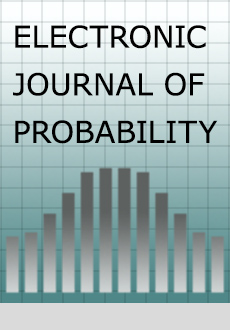Abstract
We consider the solution to the one-dimensional parabolic Anderson model with homogeneous initial condition, arbitrary drift and a time-independent potential bounded from above. Under ergodicity and independence conditions we derive representations for both the quenched Lyapunov exponent and, more importantly, the $p$-th annealed Lyapunov exponents for all positive real $p$. These results enable us to prove the heuristically plausible fact that the $p$-th annealed Lyapunov exponent converges to the quenched Lyapunov exponent as $p$ tends to 0. Furthermore, we show that the solution is $p$-intermittent for $p$ large enough. As a byproduct, we compute the optimal quenched speed of the random walk appearing in the Feynman-Kac representation of the solution under the corresponding Gibbs measure. In our context, depending on the negativity of the potential, a phase transition from zero speed to positive speed appears as the drift parameter or diffusion constant increase, respectively.
Citation
Alexander Drewitz. "Lyapunov exponents for the one-dimensional parabolic Anderson model with drift." Electron. J. Probab. 13 2283 - 2336, 2008. https://doi.org/10.1214/EJP.v13-586
Information





